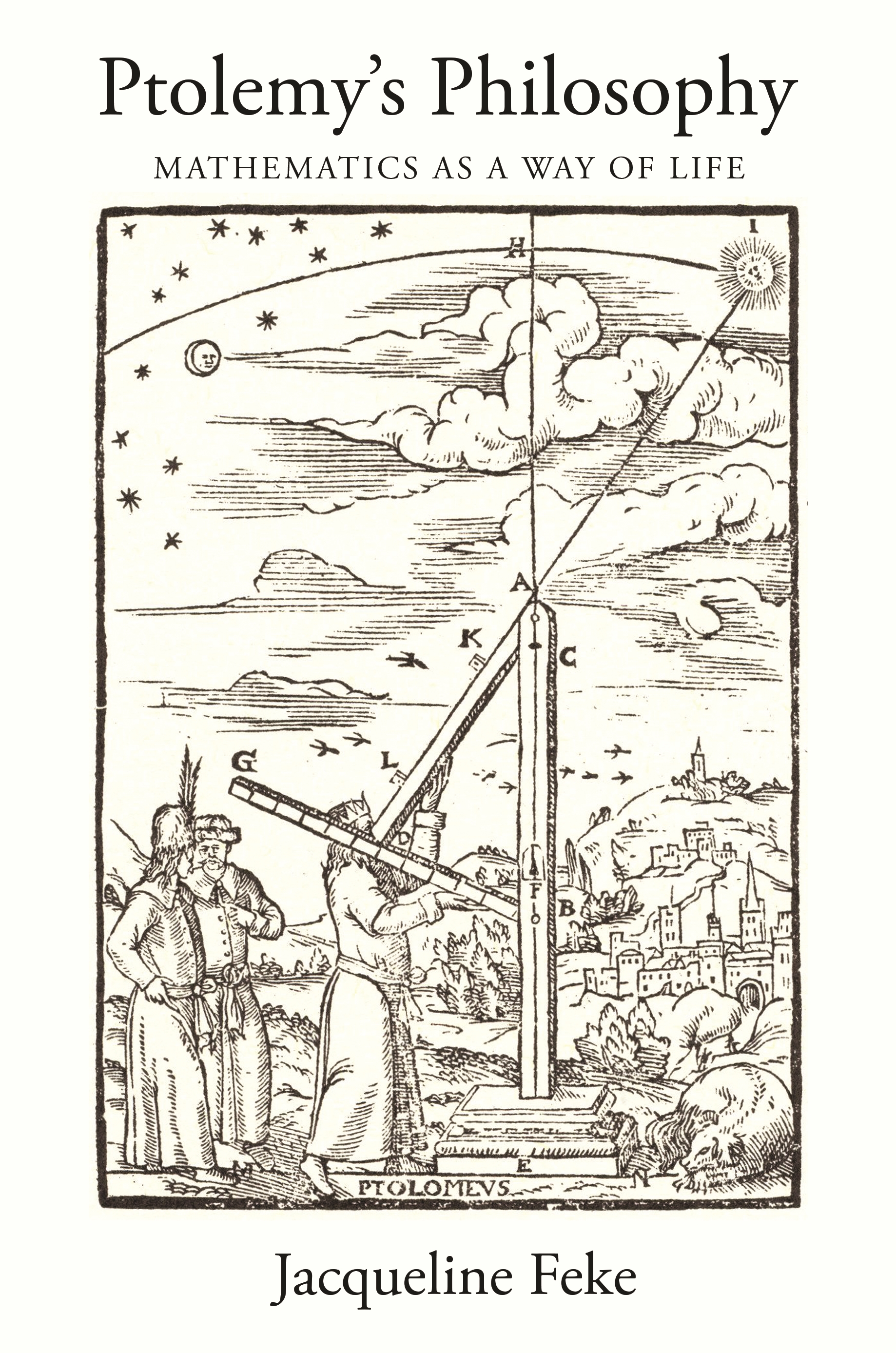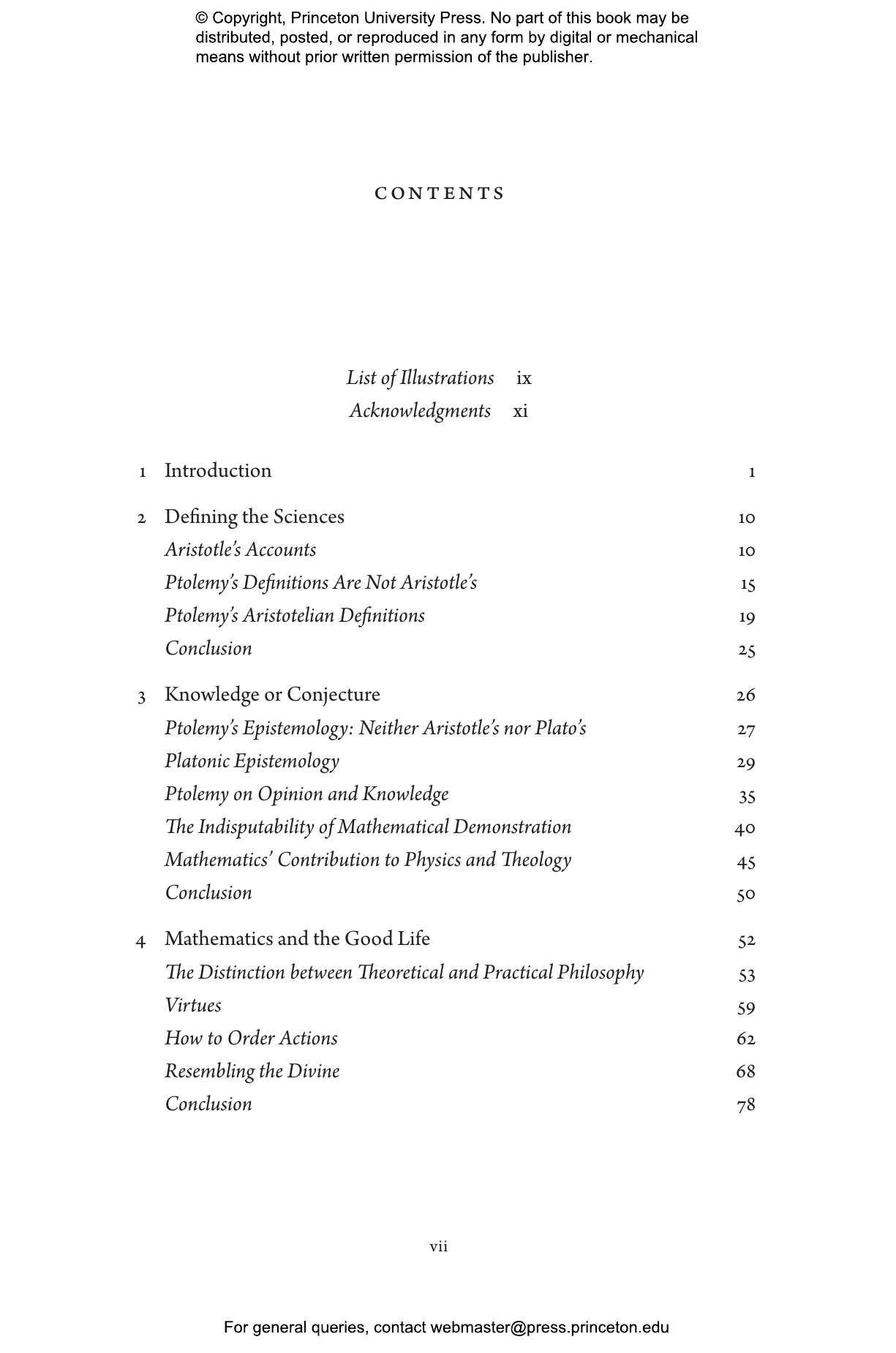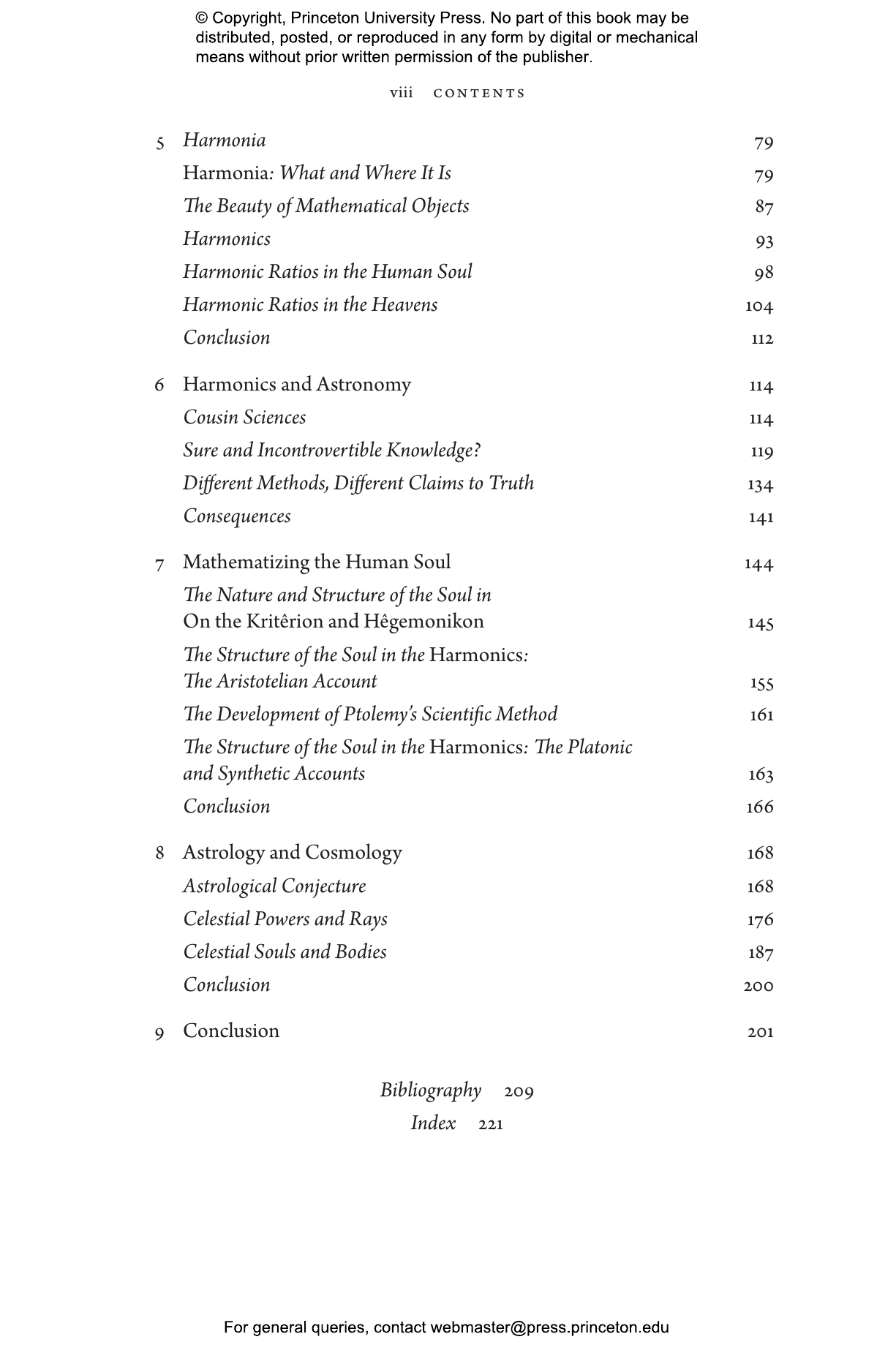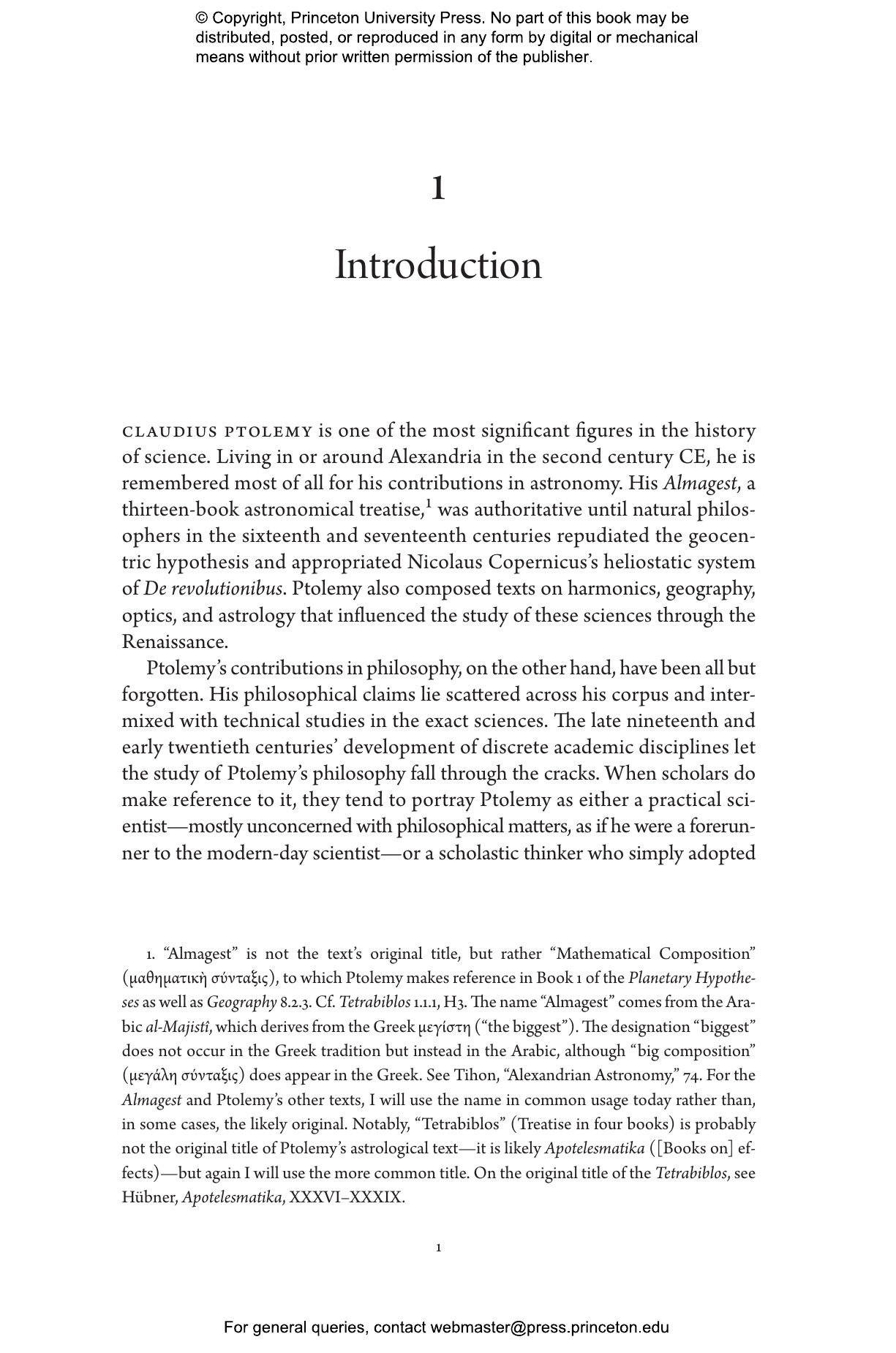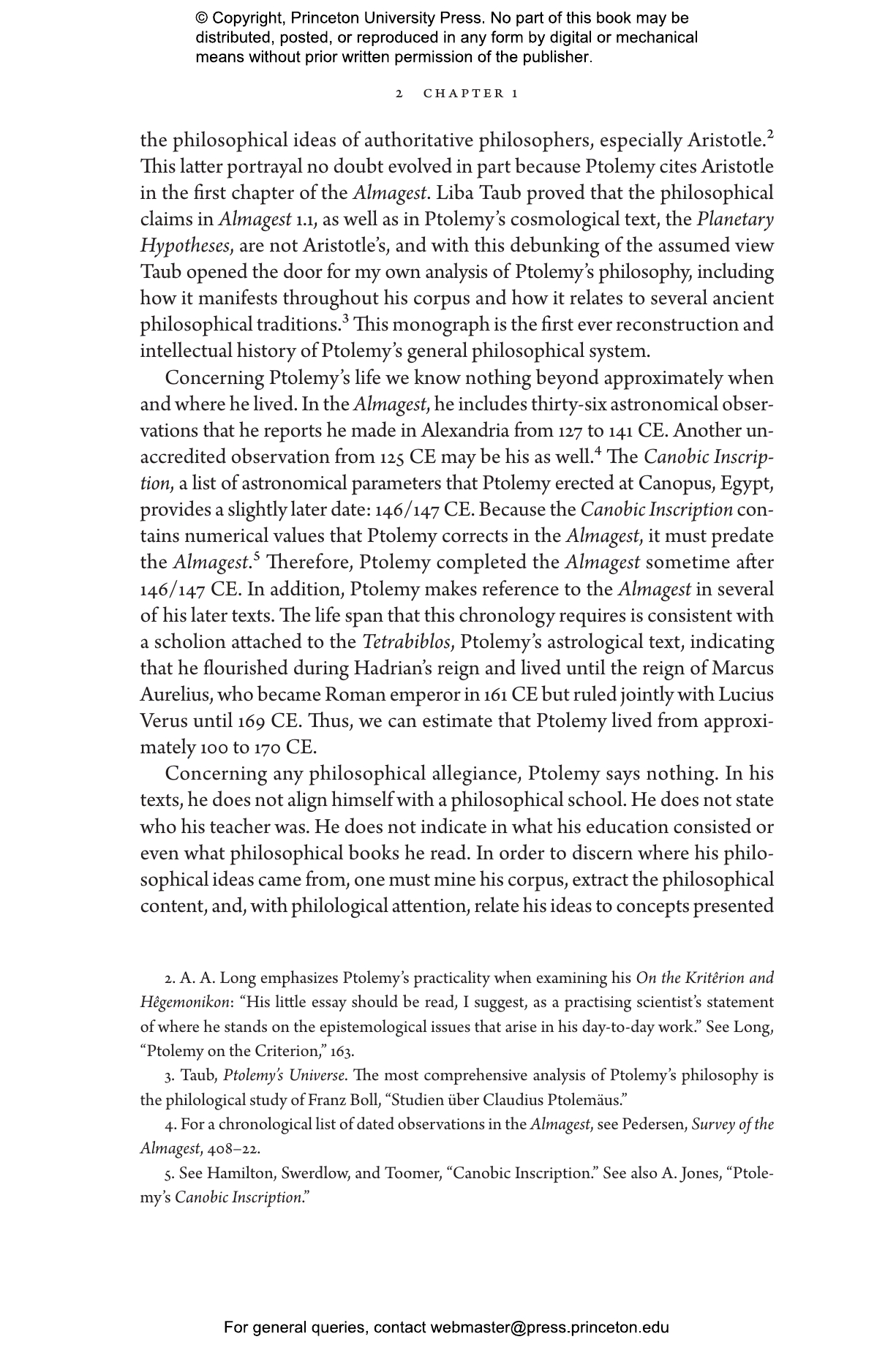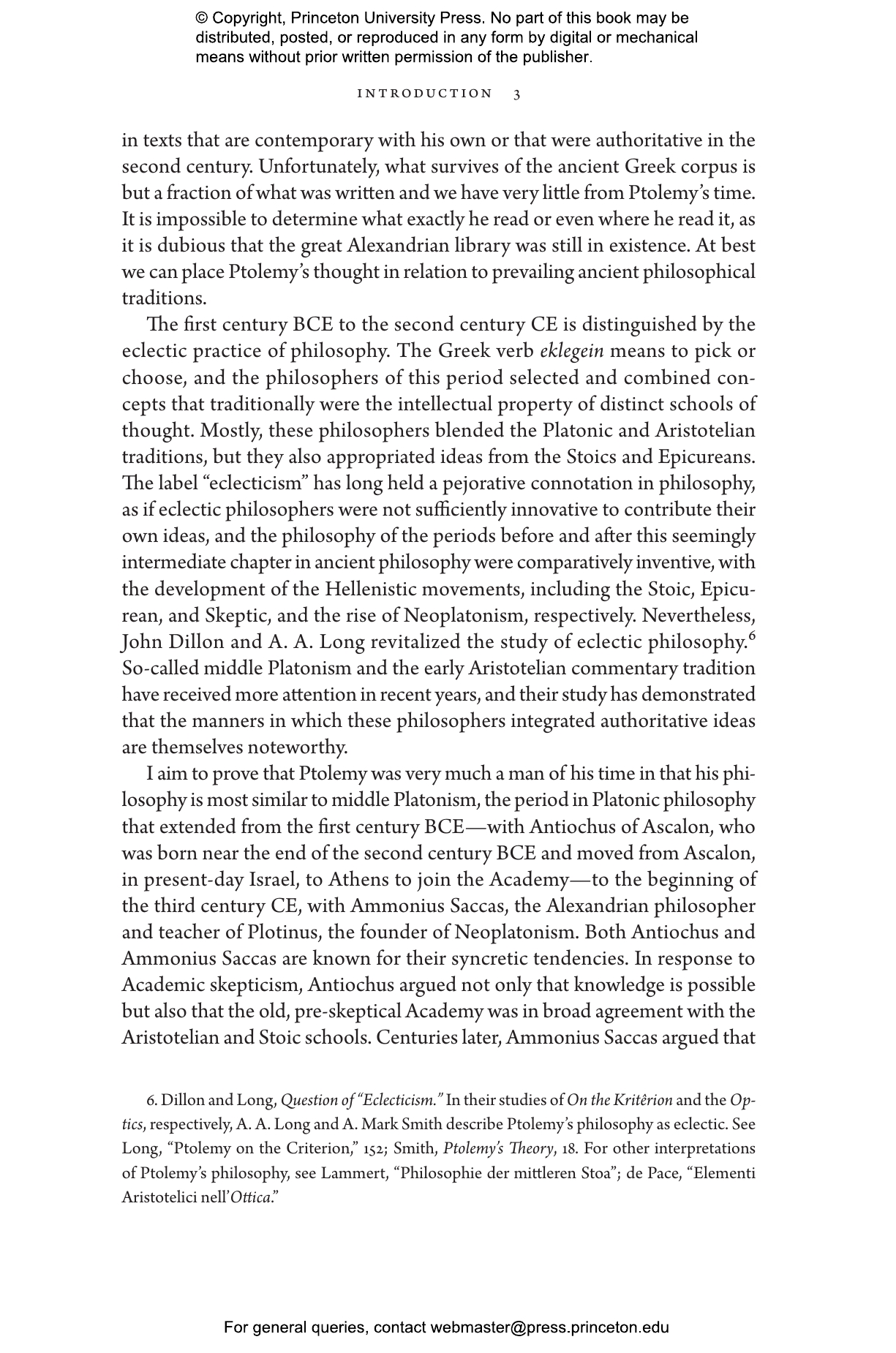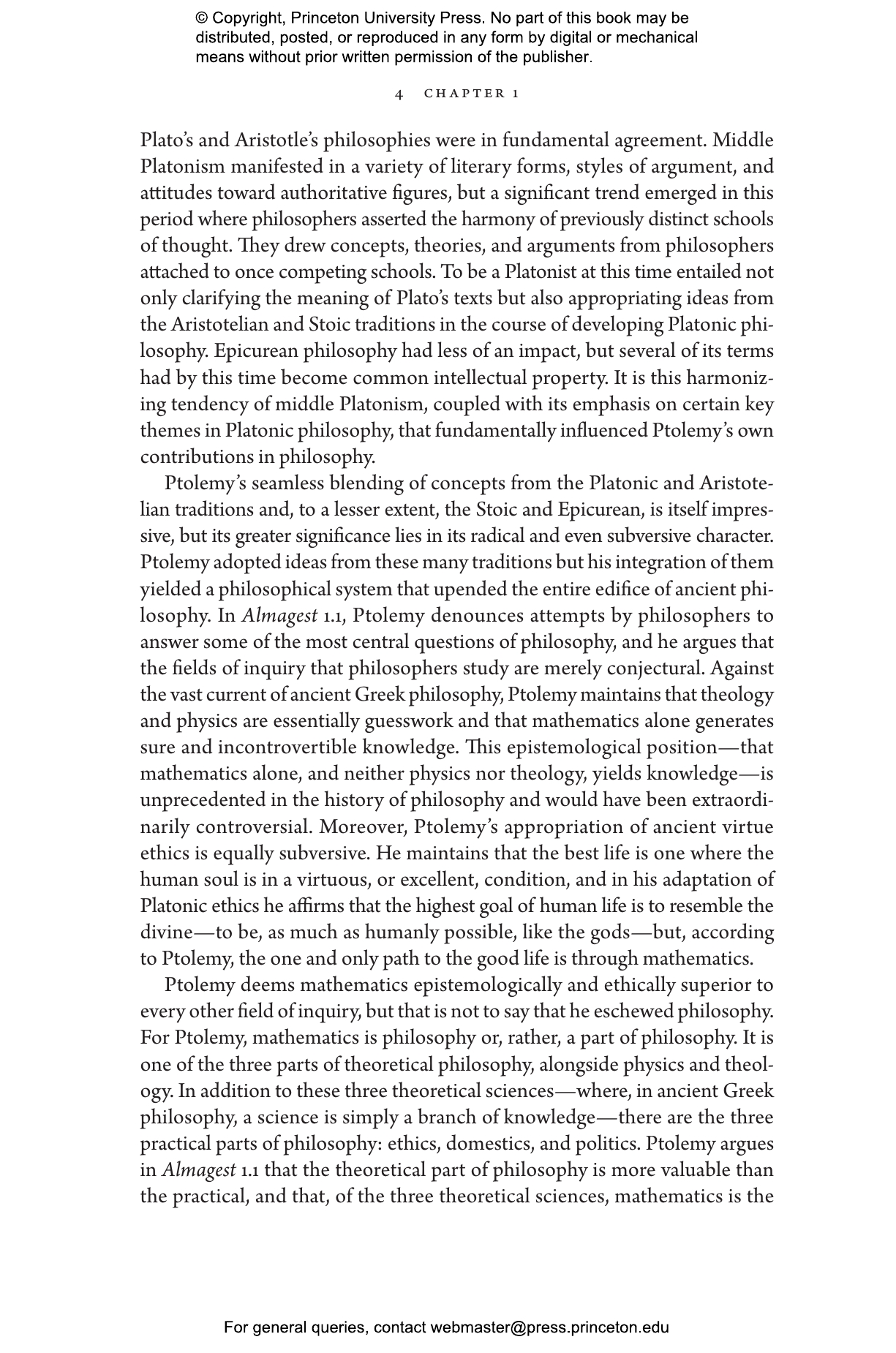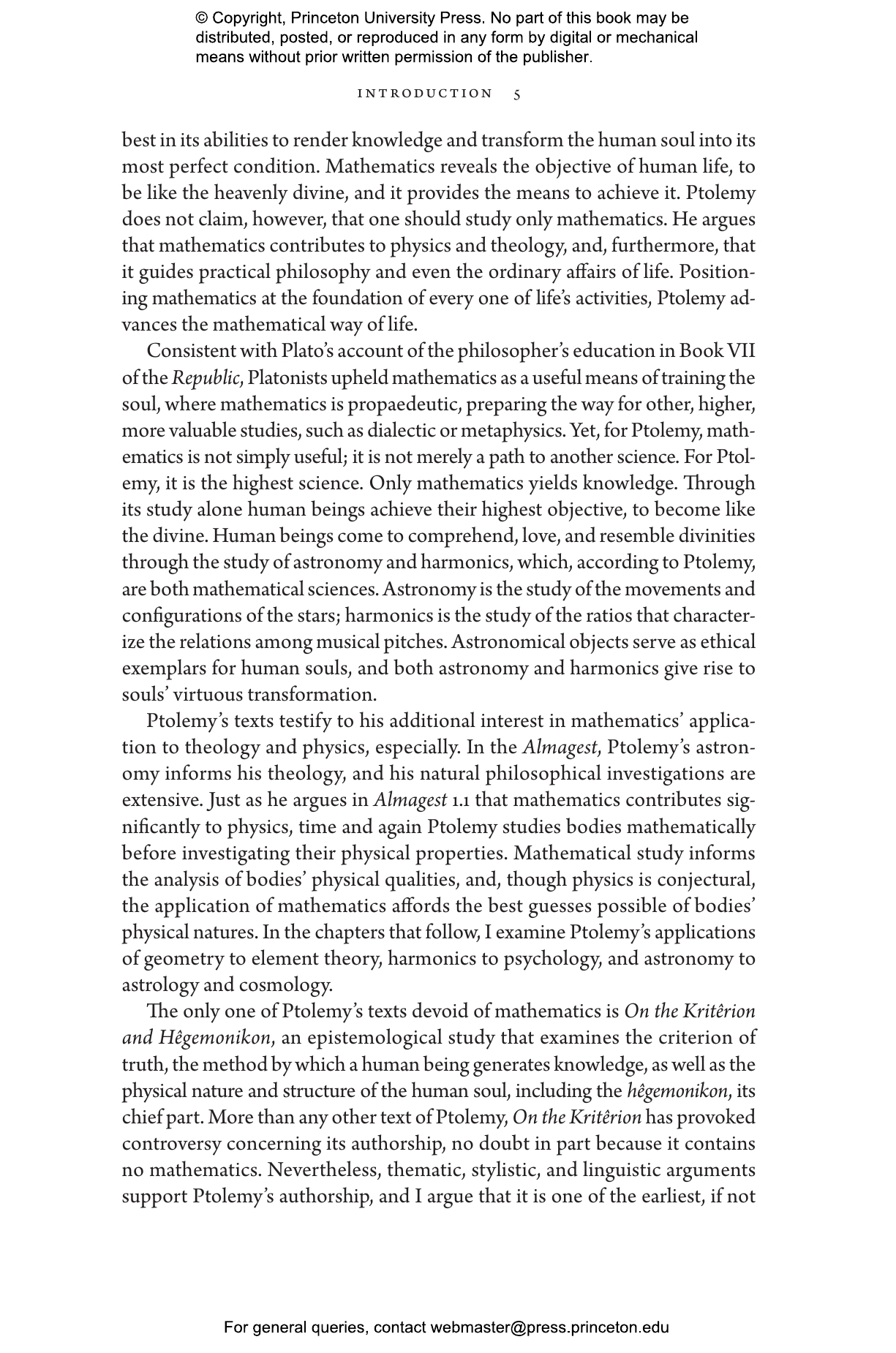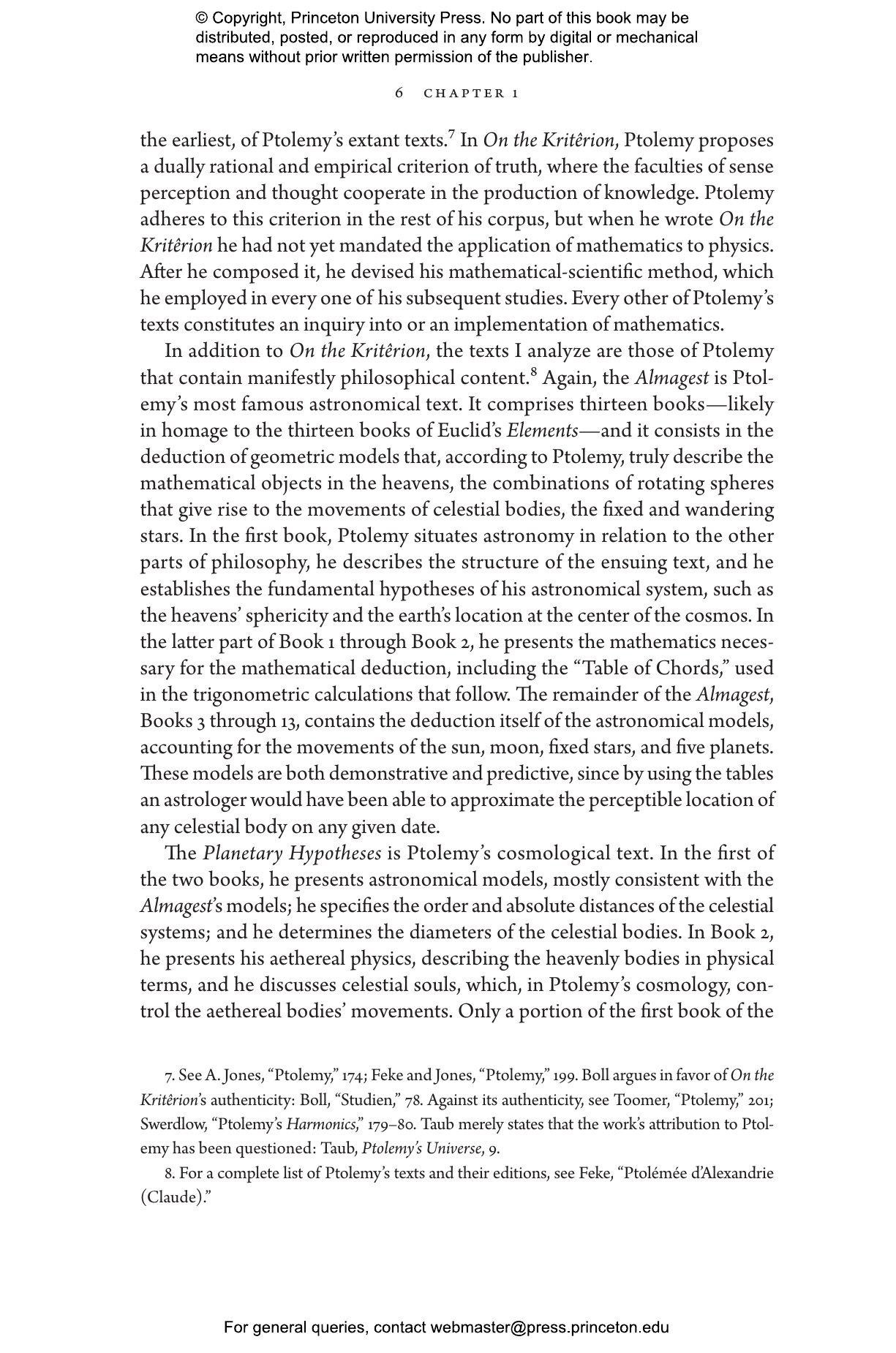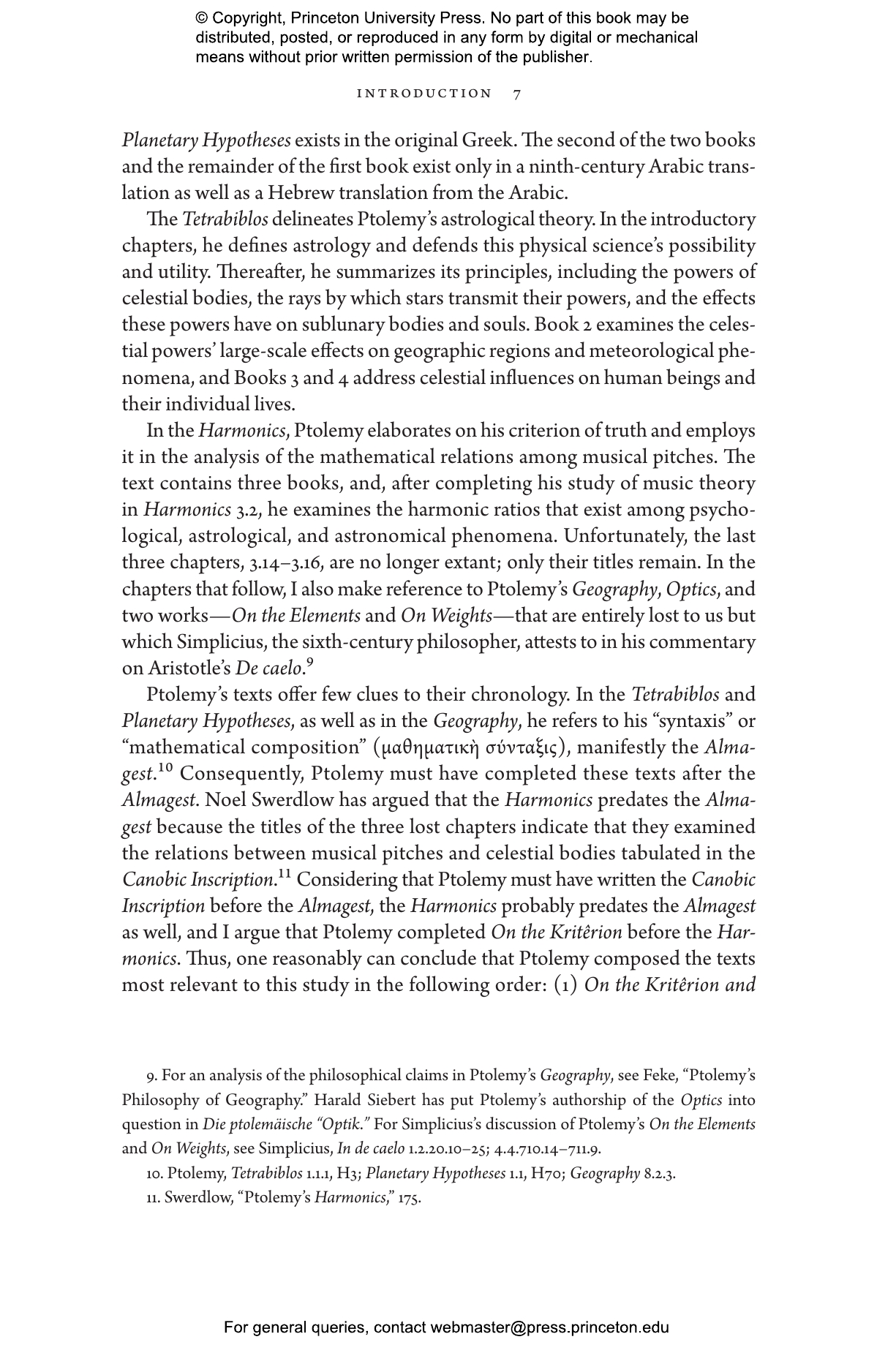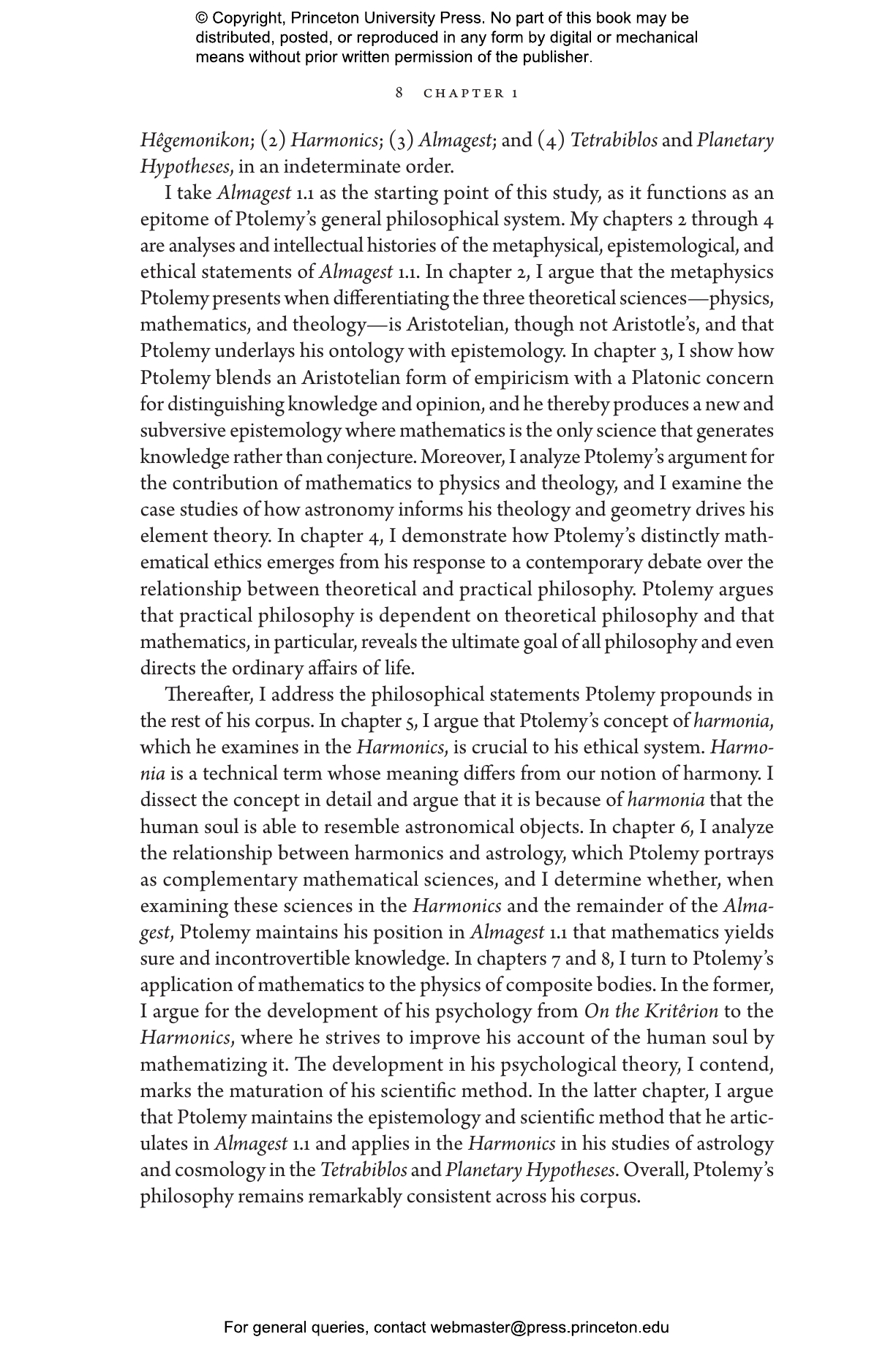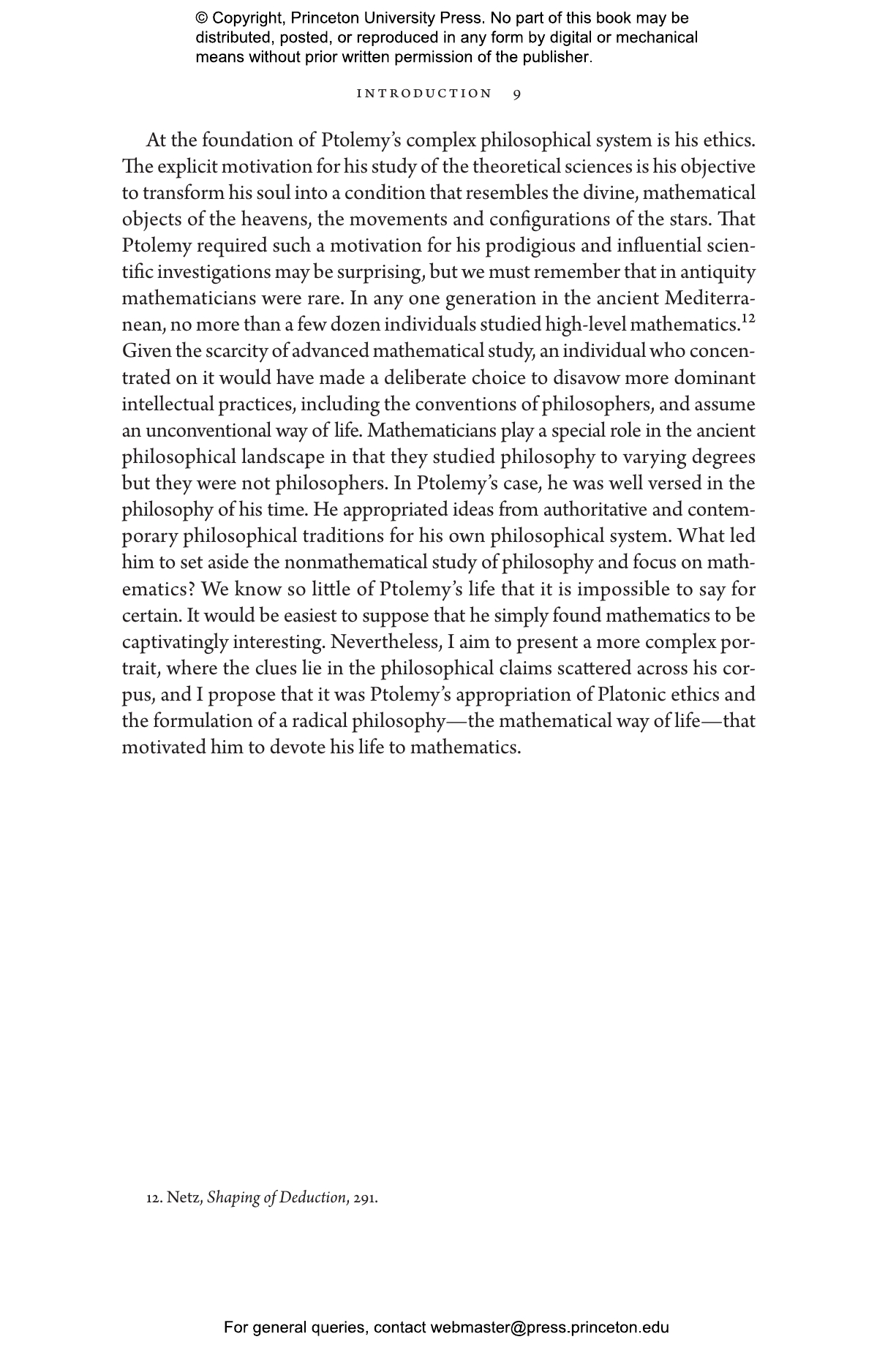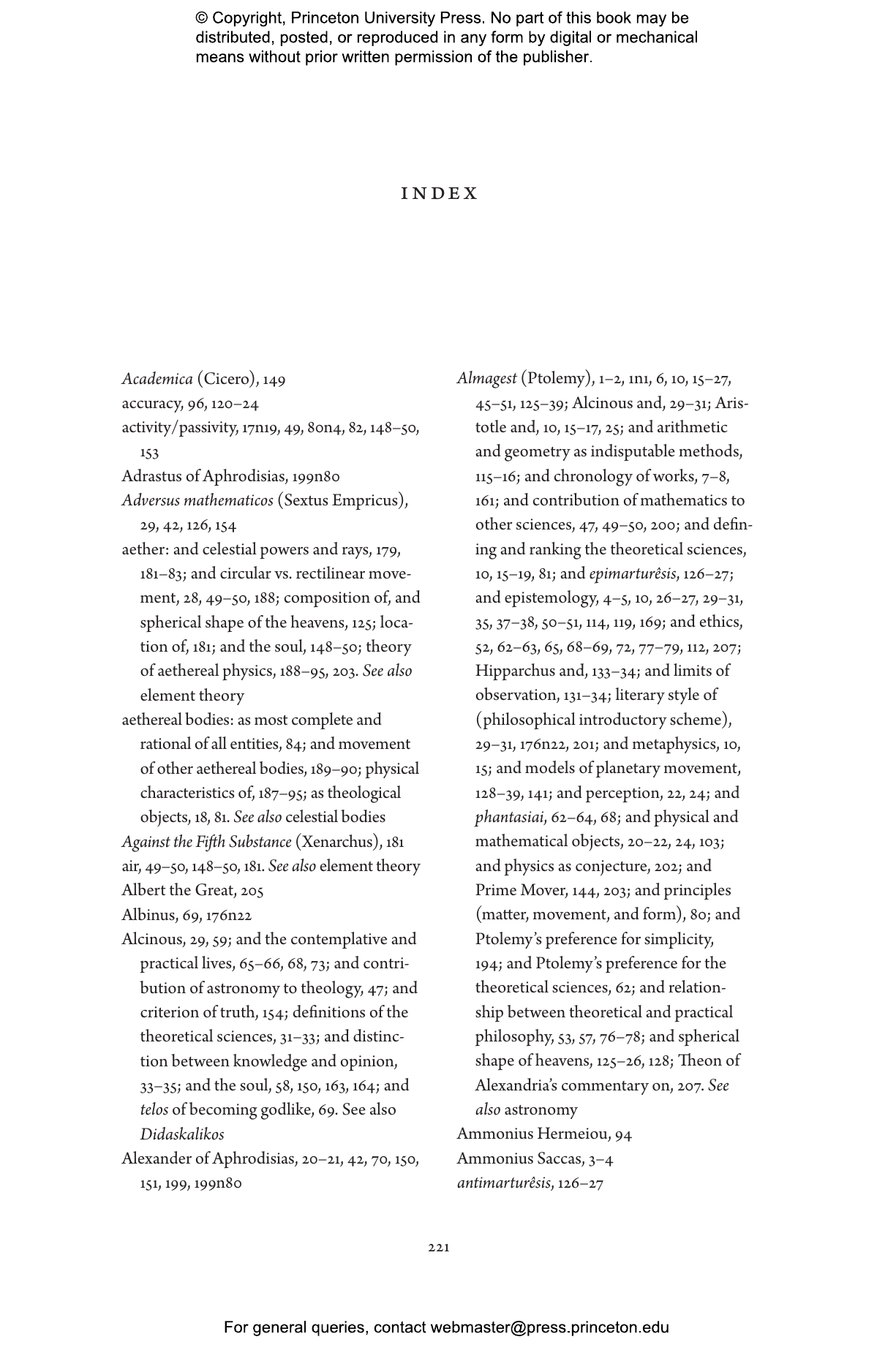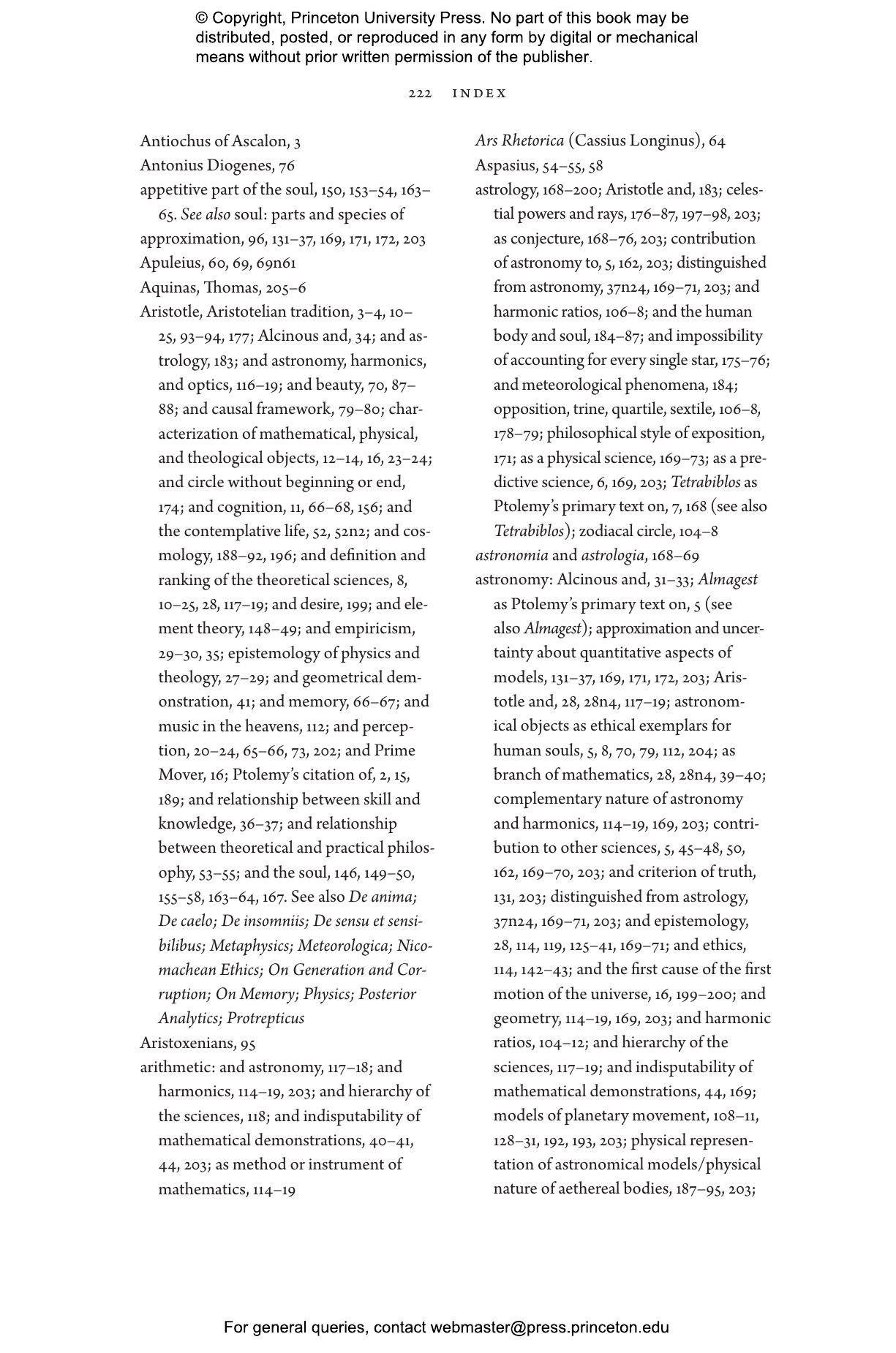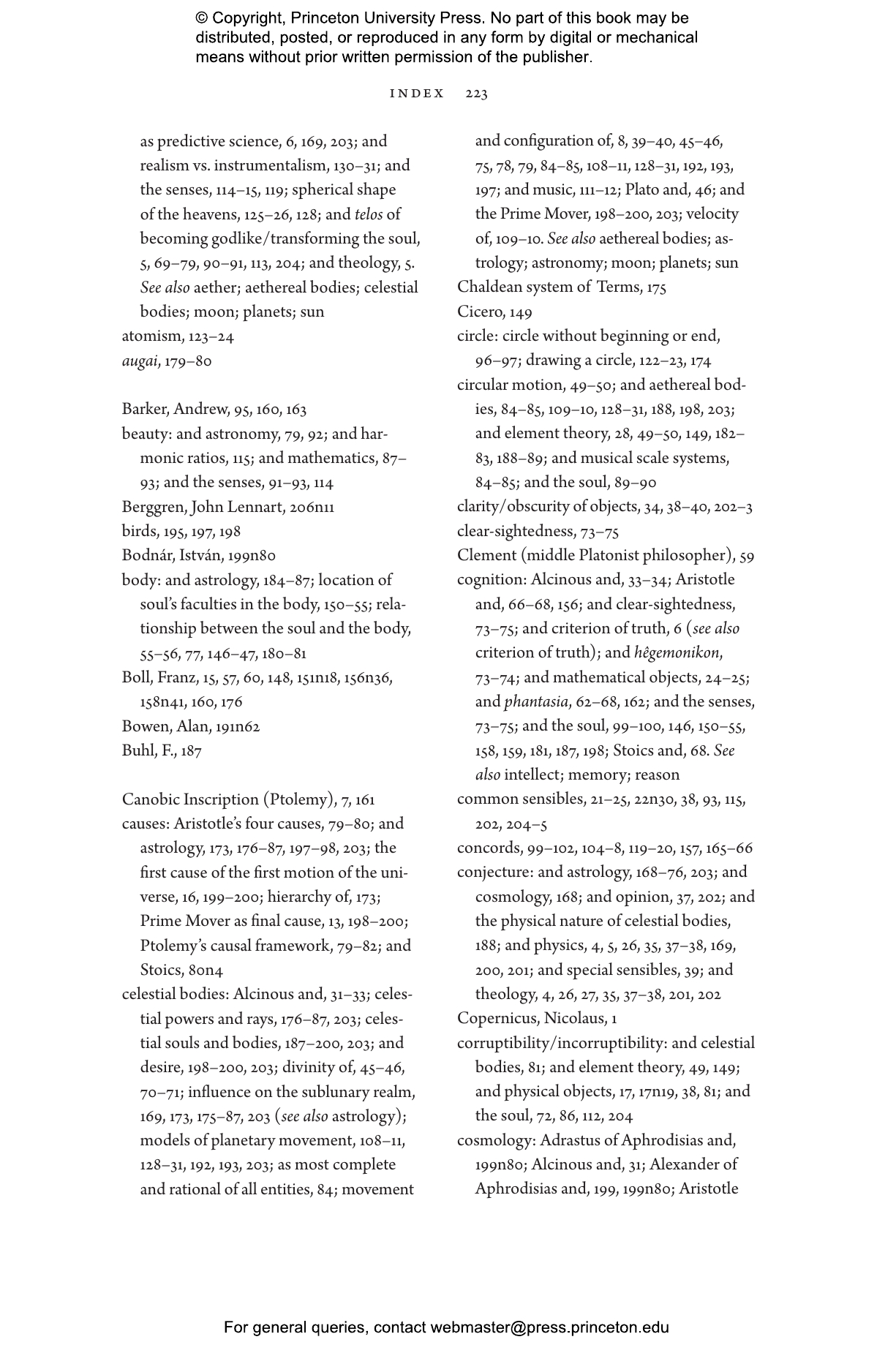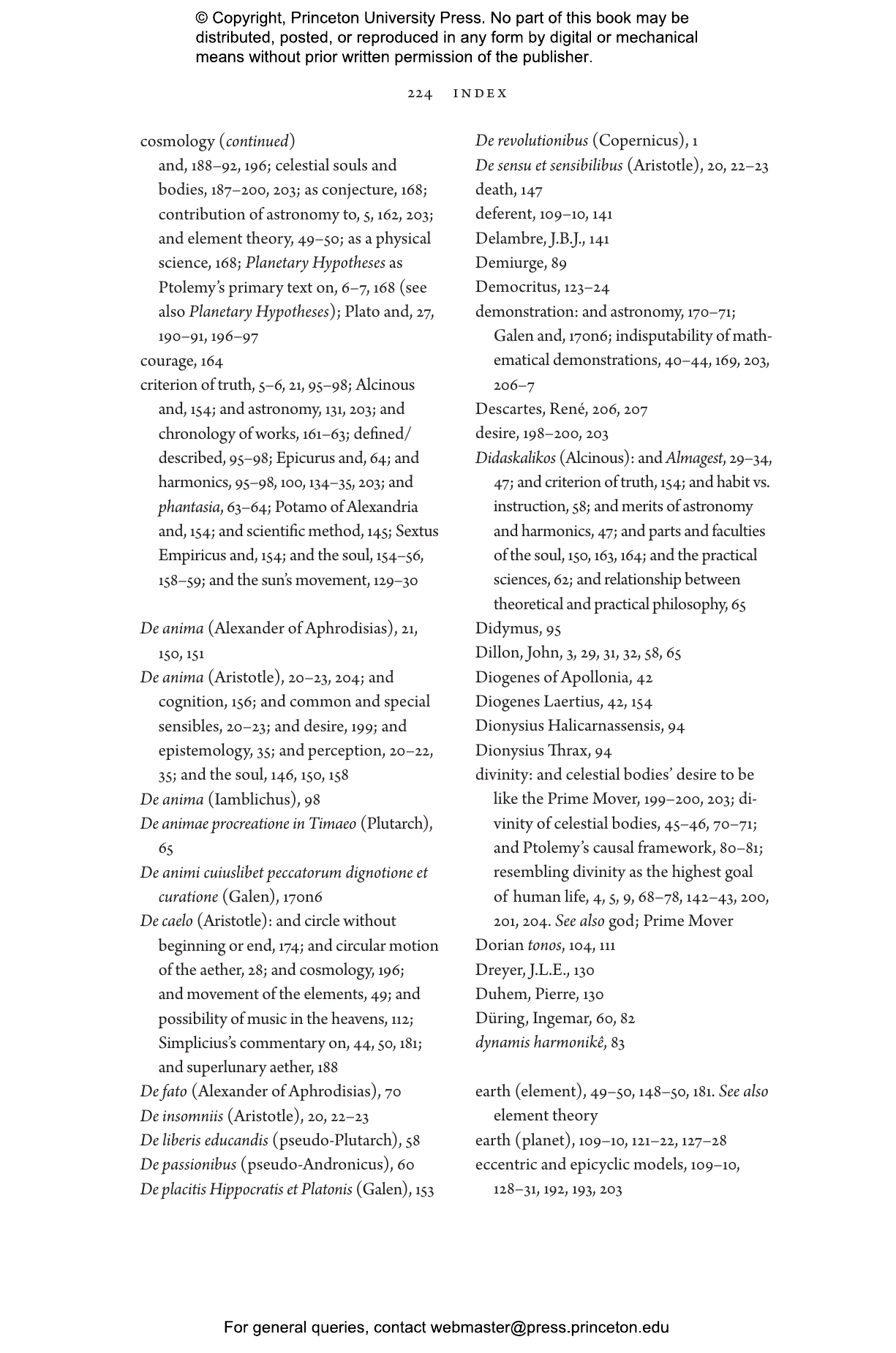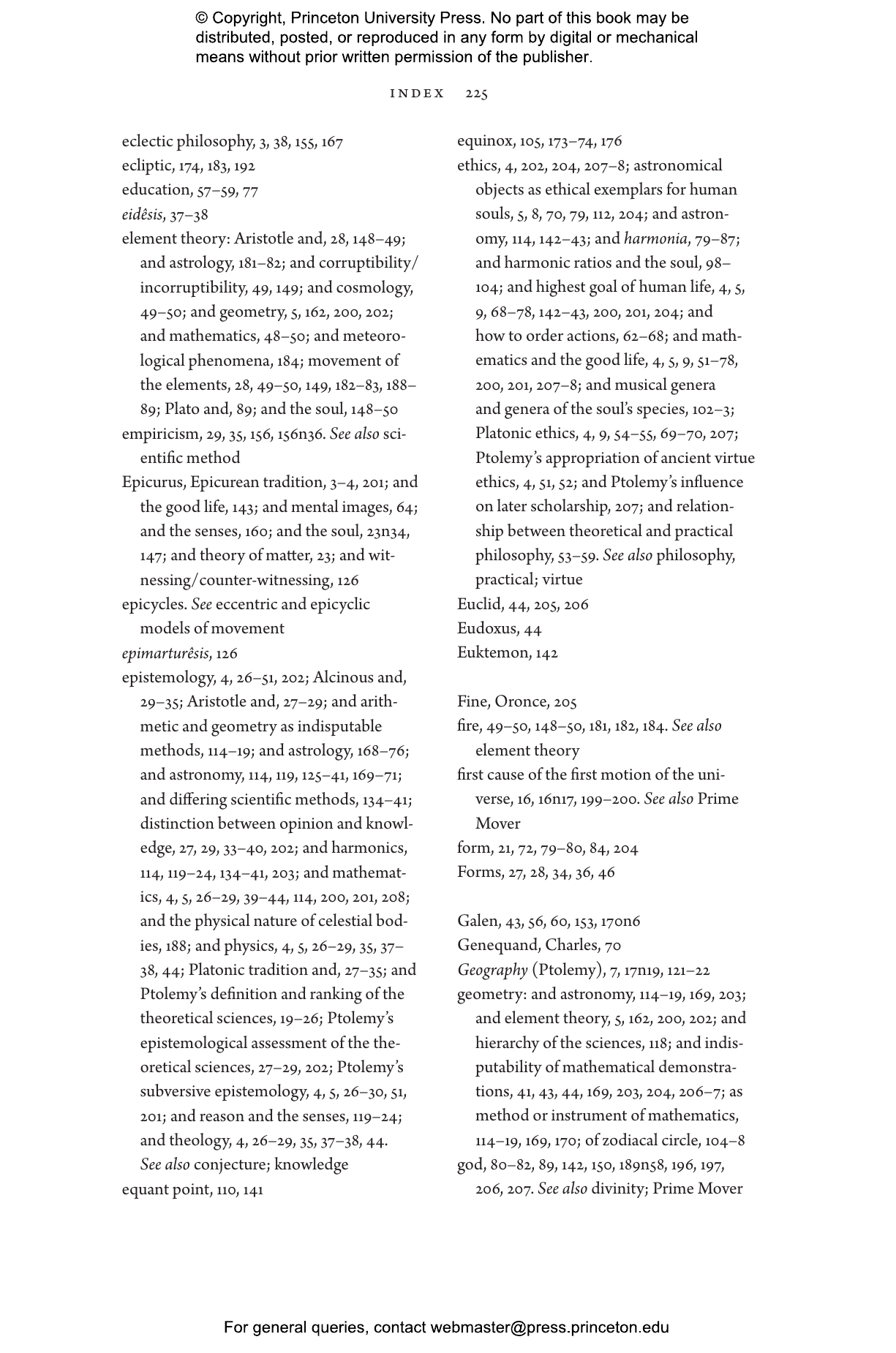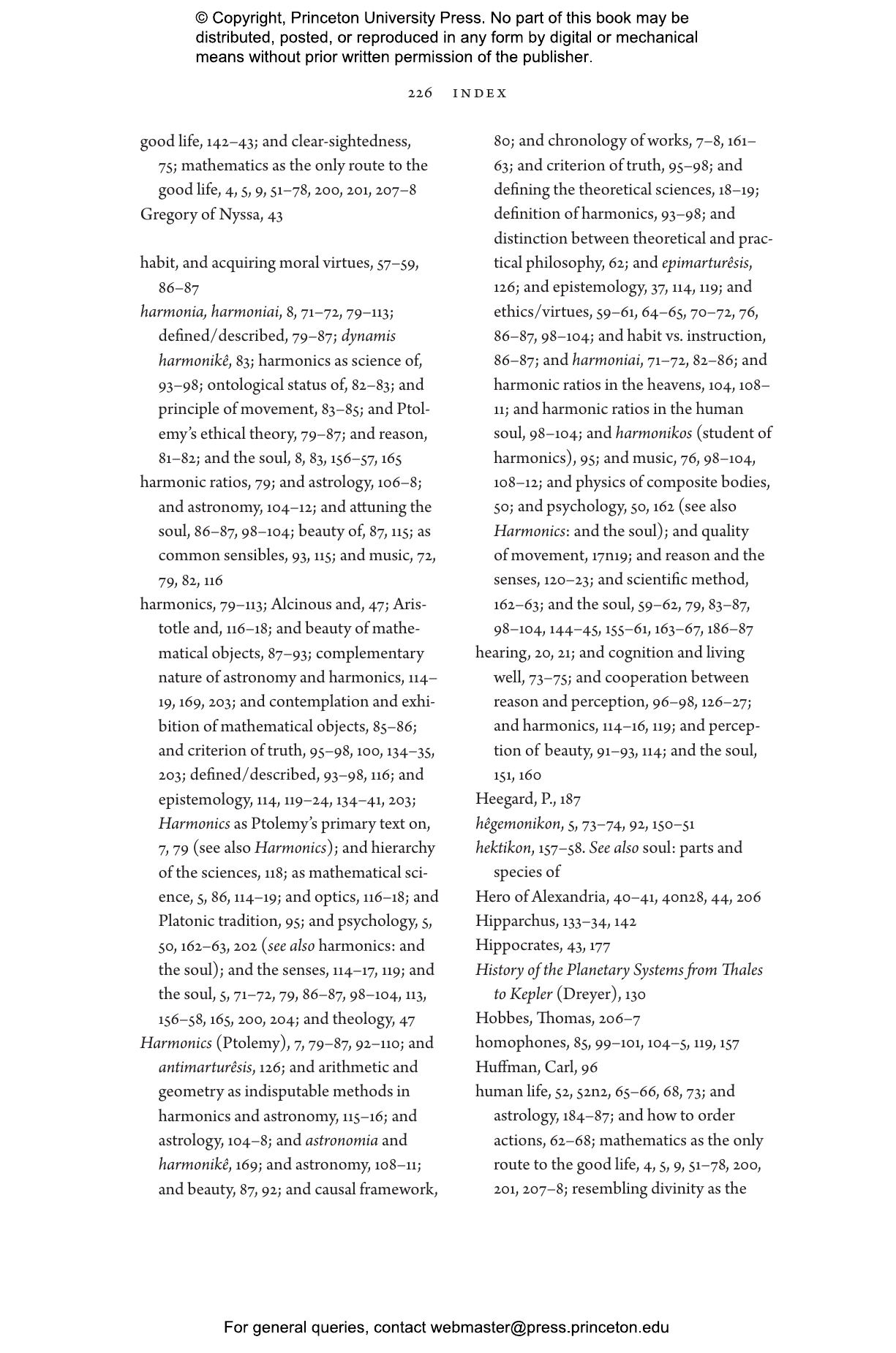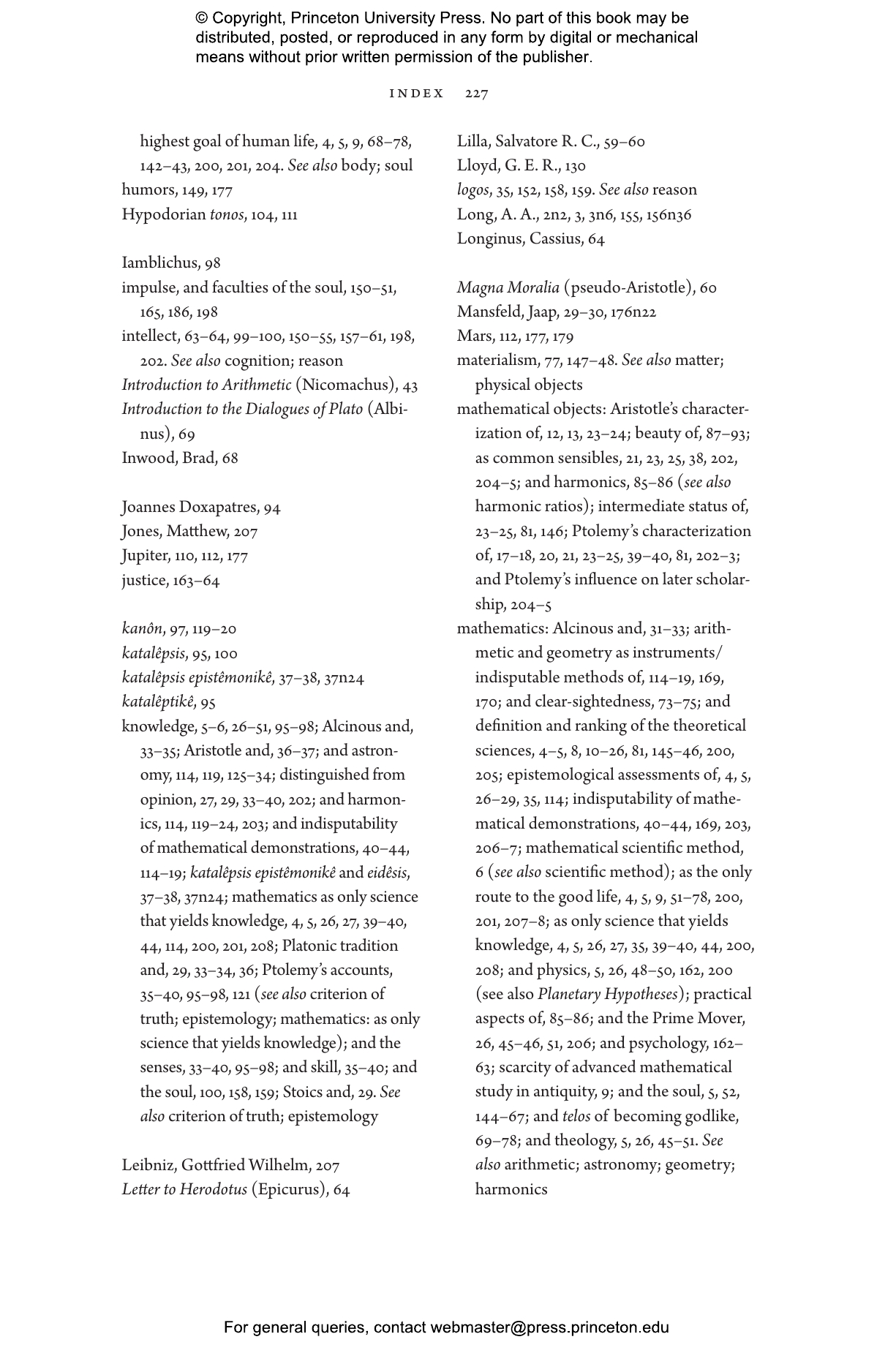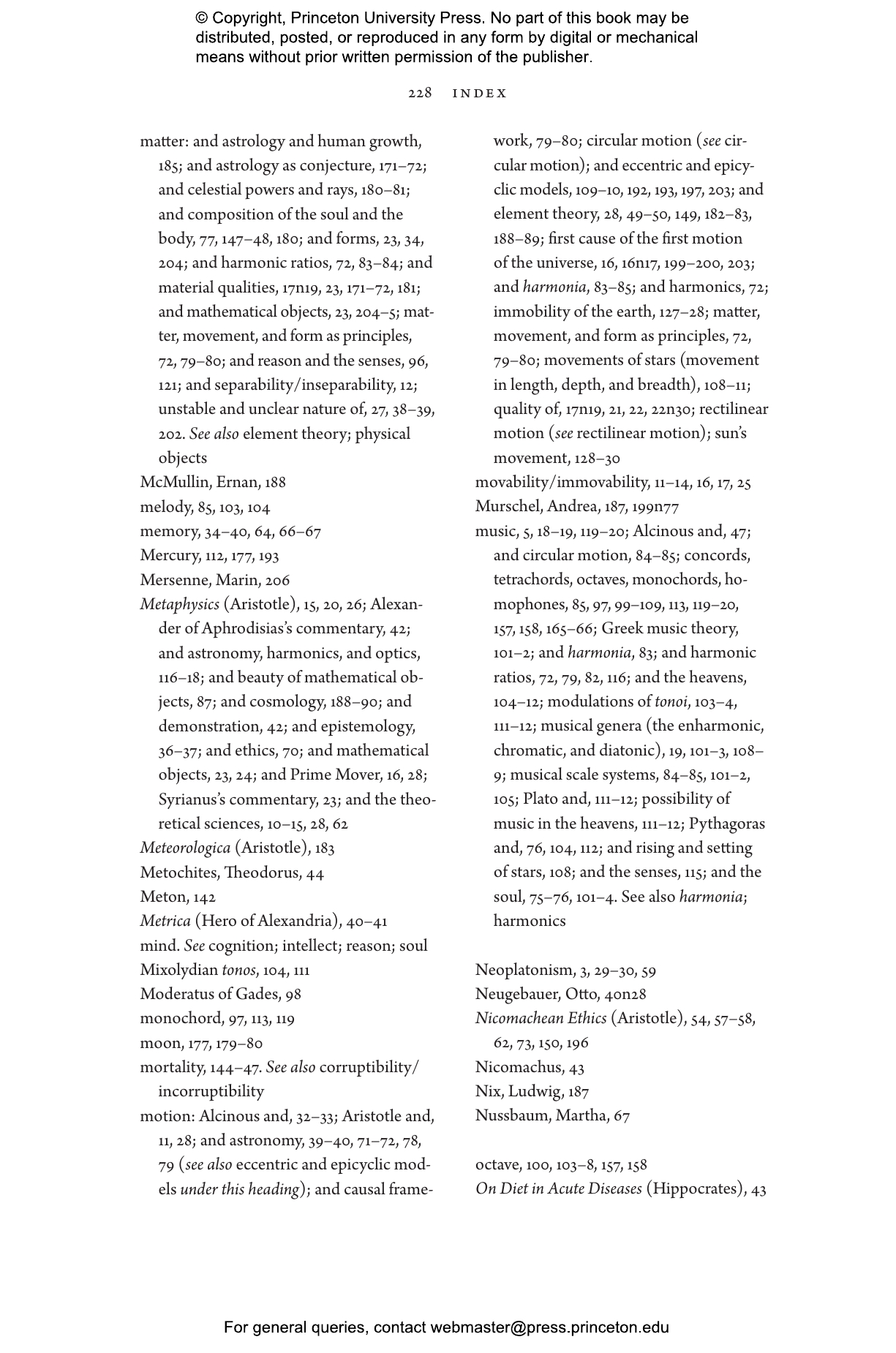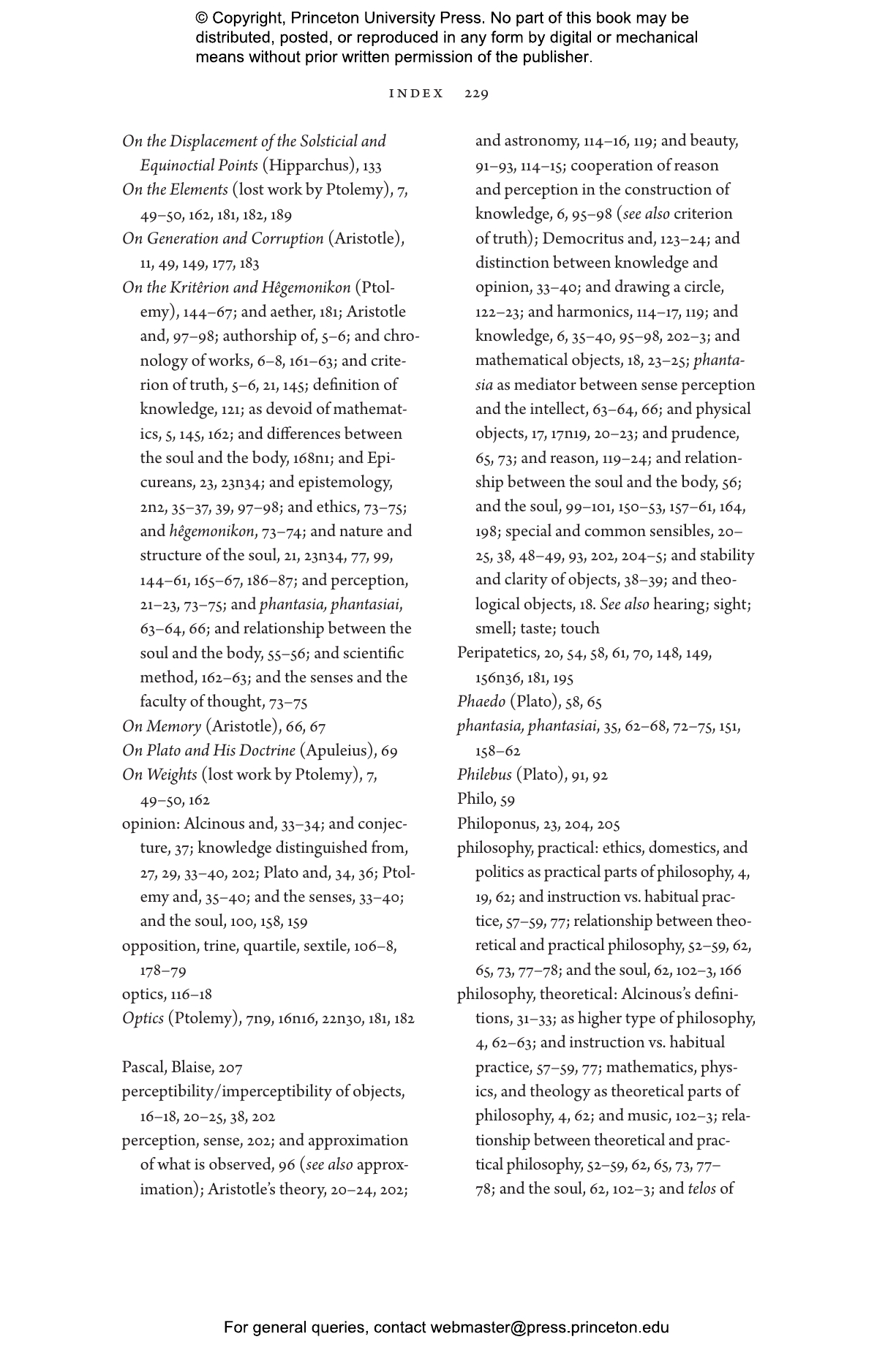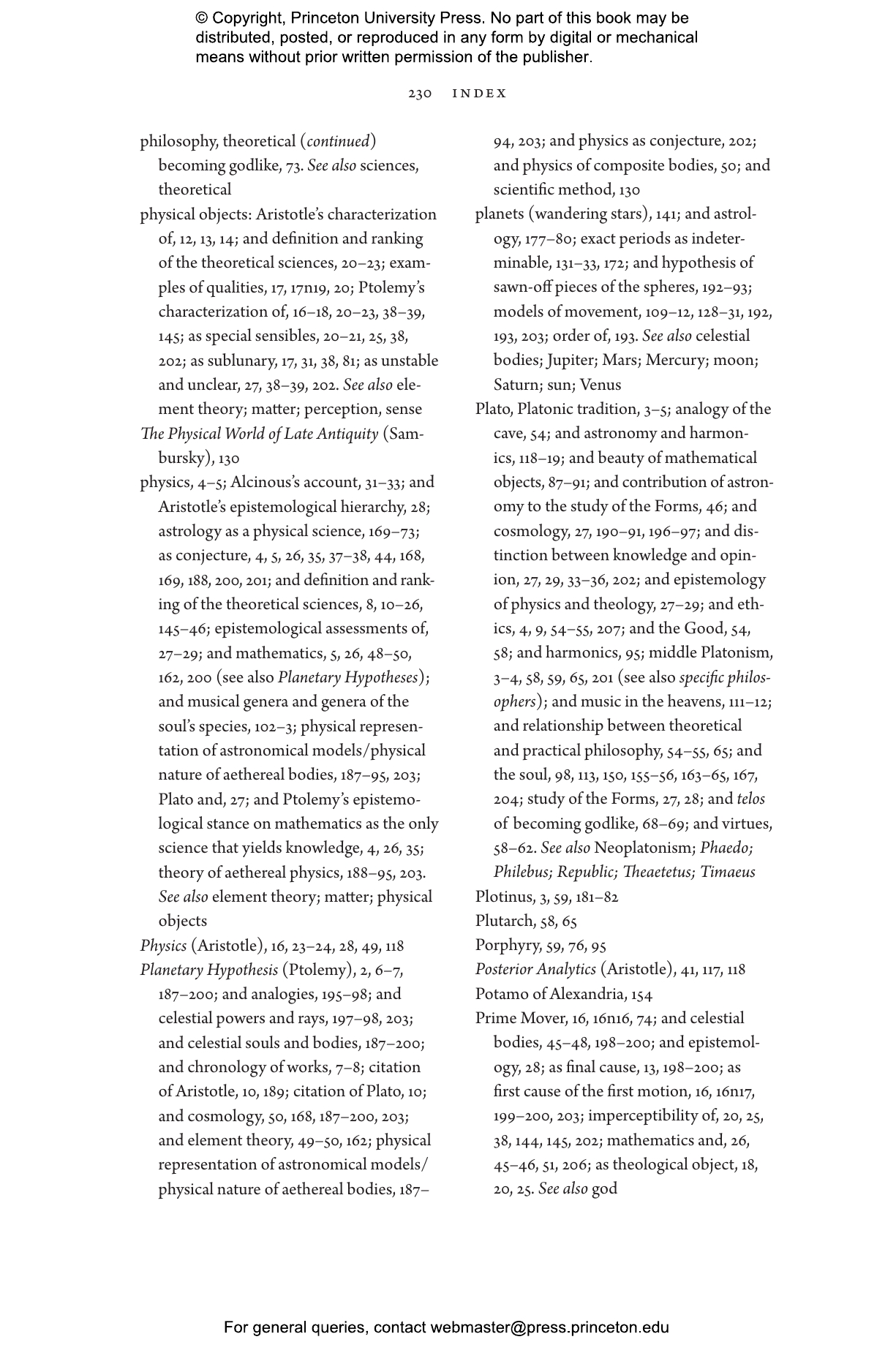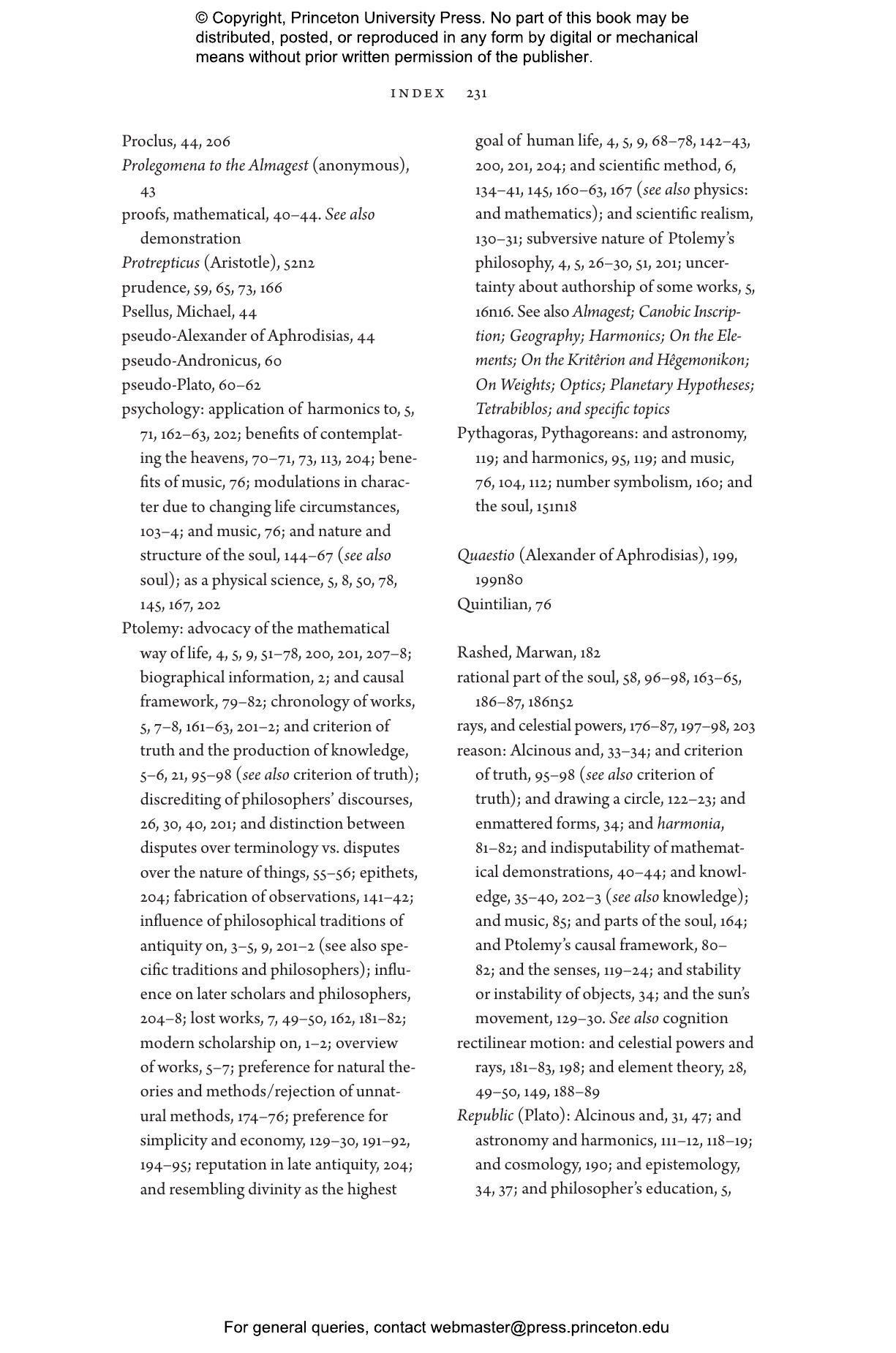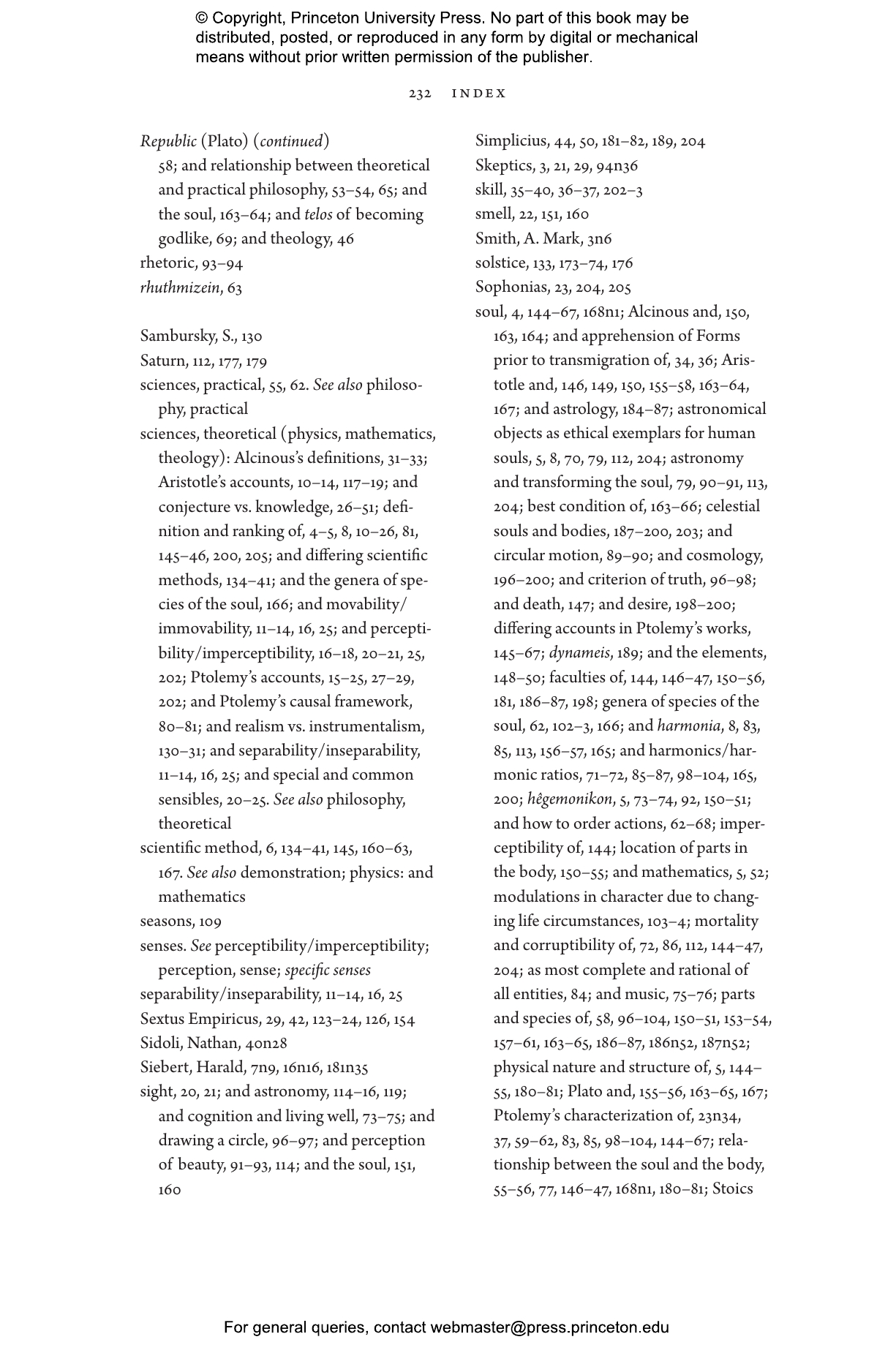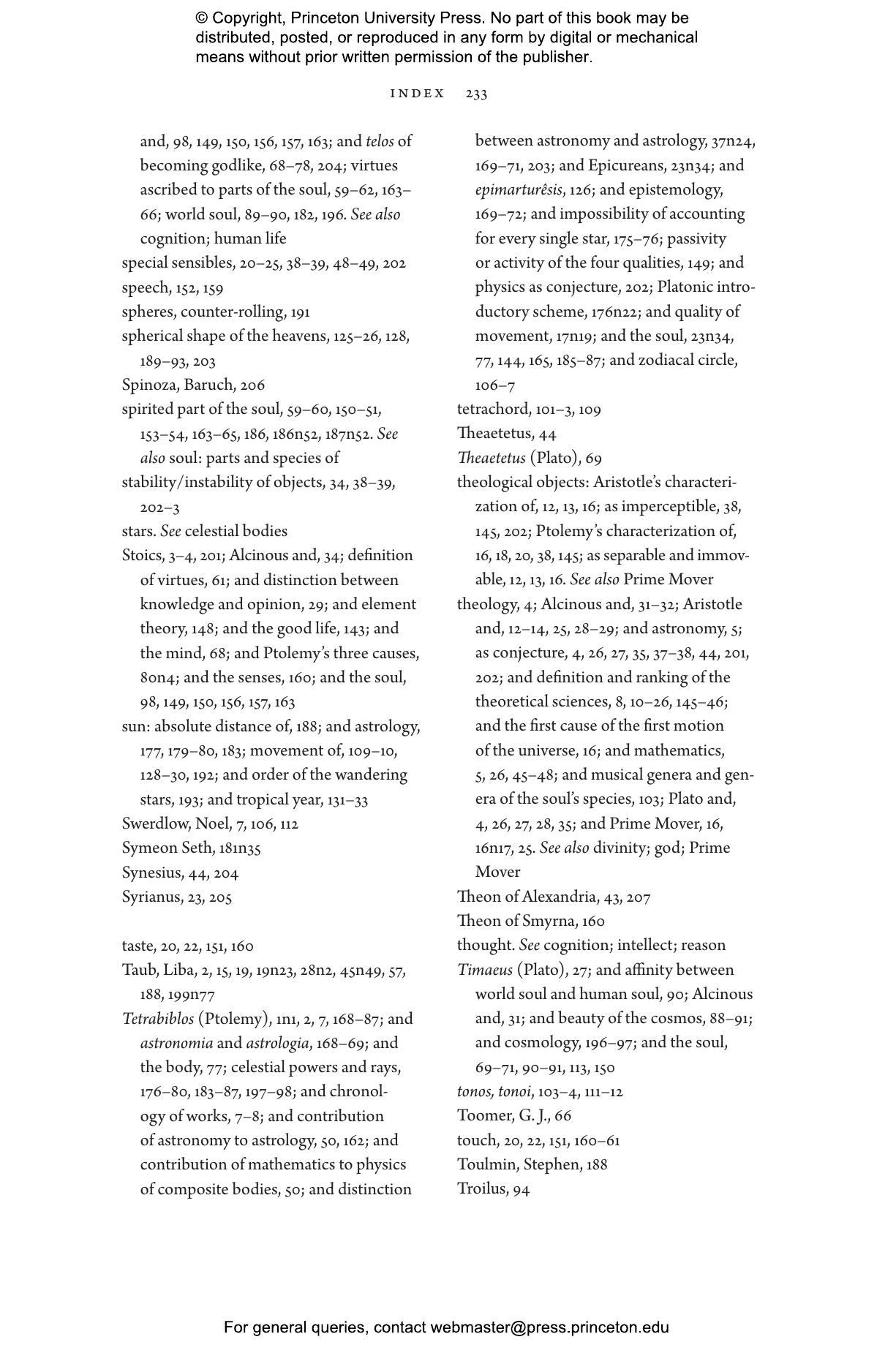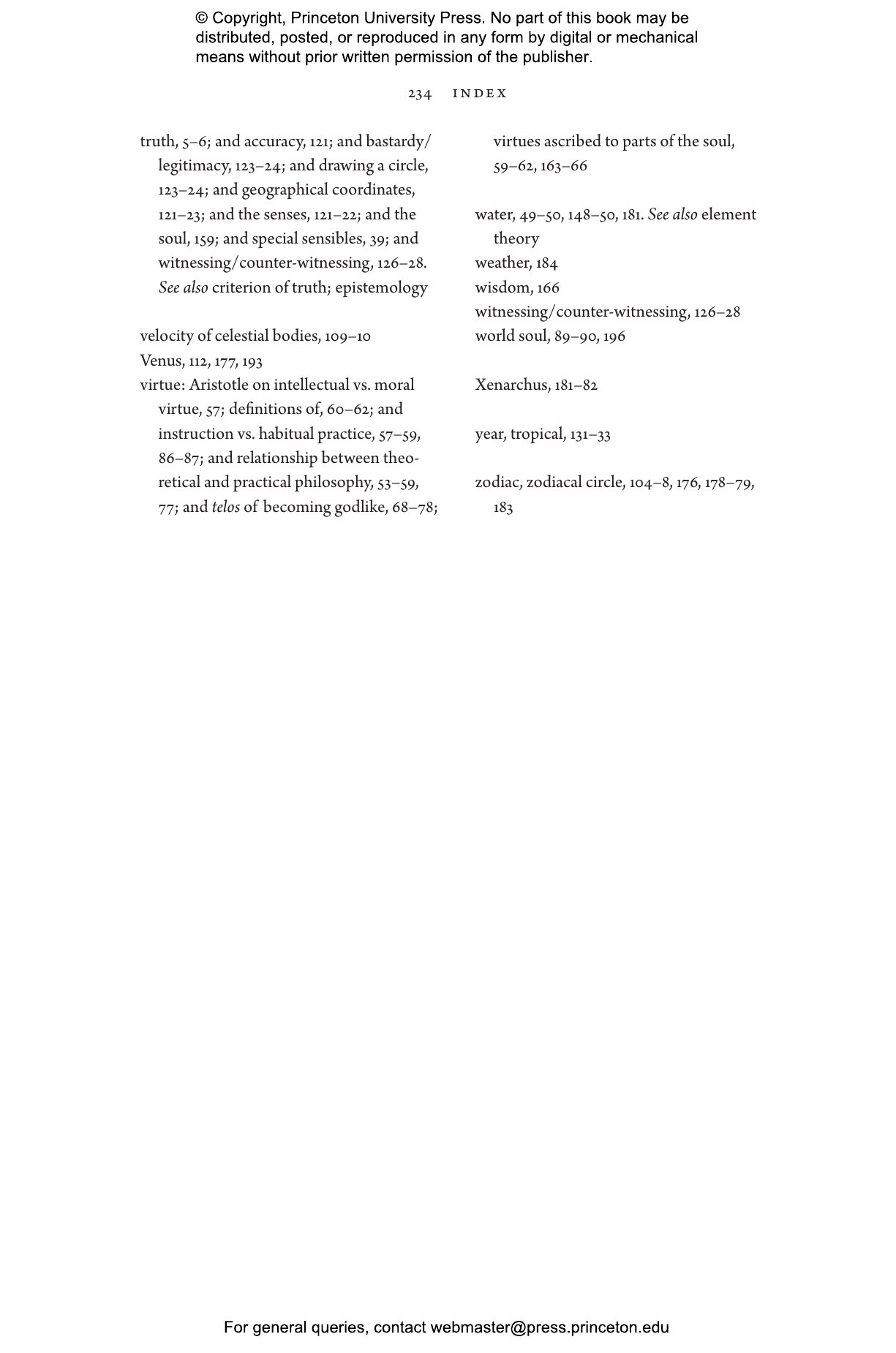History of Science & Knowledge
Ptolemy's Philosophy: Mathematics as a Way of Life
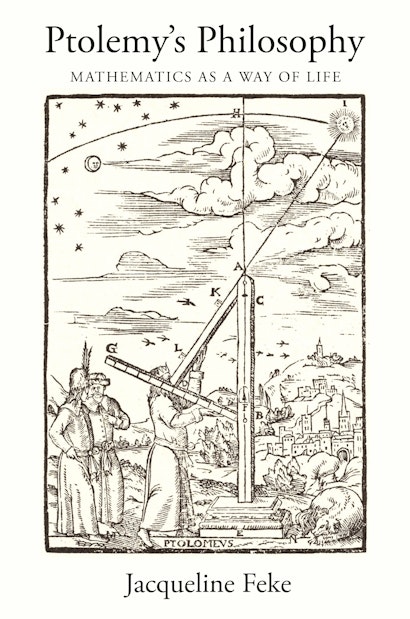

Hardcover
Paperback
ebook
- Sale Price:
- $22.40/£19.60
- Price:
-
$32.00/£28.00 - ISBN:
- Published:
- Oct 16, 2018
- Copyright:
- 2018
- Main_subject:
- History of Science & Knowledge
30% off with code PUP30
The Greco-Roman mathematician Claudius Ptolemy is one of the most significant figures in the history of science. He is remembered today for his astronomy, but his philosophy is almost entirely lost to history. This groundbreaking book is the first to reconstruct Ptolemy’s general philosophical system—including his metaphysics, epistemology, and ethics—and to explore its relationship to astronomy, harmonics, element theory, astrology, cosmology, psychology, and theology.
In this stimulating intellectual history, Jacqueline Feke uncovers references to a complex and sophisticated philosophical agenda scattered among Ptolemy’s technical studies in the physical and mathematical sciences. She shows how he developed a philosophy that was radical and even subversive, appropriating ideas and turning them against the very philosophers from whom he drew influence. Feke reveals how Ptolemy’s unique system is at once a critique of prevailing philosophical trends and a conception of the world in which mathematics reigns supreme.
A compelling work of scholarship, Ptolemy’s Philosophy demonstrates how Ptolemy situated mathematics at the very foundation of all philosophy—theoretical and practical—and advanced the mathematical way of life as the true path to human perfection.
Awards and Recognition
- Shortlisted for the Pickstone Prize, British Society for the History of Science
